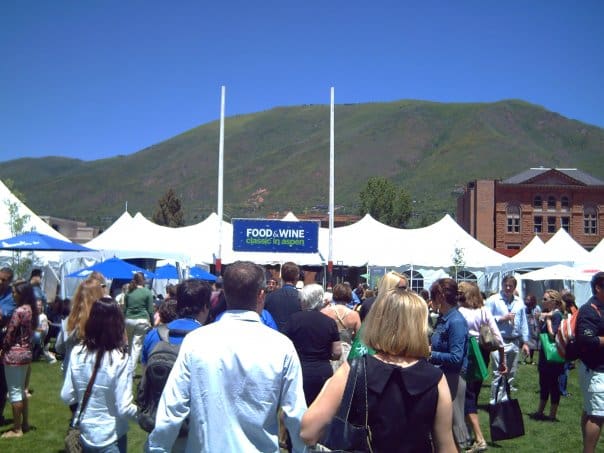The Beginnings of the Aspen Food & Wine Classic: A Culinary Tradition in the Mountains
The Aspen Food & Wine Classic is one of the most prestigious culinary events in the world, attracting top chefs, renowned winemakers, and food enthusiasts from all corners of the globe. But how did this iconic festival, set against the stunning backdrop of the Rocky Mountains, come to be? The story of the Aspen Food & Wine Classic is a tale of vision, passion, and the evolution of the American food scene.
The Early Days: A New Idea in the Rockies
The seeds of the Aspen Food & Wine Classic were planted in the early 1980s, a time when the culinary landscape in America was undergoing significant changes. The farm-to-table movement was gaining momentum, and there was a growing appreciation for fine dining and quality ingredients. Against this backdrop, Aspen, Colorado, known for its luxurious ski resorts and vibrant arts scene, seemed like the perfect location for a new kind of food festival.
In 1983, the first Food & Wine Magazine Classic at Aspen was launched. The event was modest by today’s standards but groundbreaking at the time. It was designed as a gathering place for food and wine lovers, where they could learn from the best in the industry, sample exquisite dishes, and discover new wines. The inaugural event featured a handful of cooking demonstrations, wine tastings, and panel discussions, laying the foundation for what would become an annual tradition.
The Rise of the Celebrity Chef
One of the key factors that contributed to the success and growth of the Aspen Food & Wine Classic was the rise of the celebrity chef. In the 1980s and 1990s, chefs were becoming household names, thanks in part to the growing influence of food television and the media. The Classic capitalized on this trend by inviting top chefs to showcase their talents and share their knowledge with attendees.
Early participants included culinary legends like Julia Child, Jacques Pépin, and Wolfgang Puck, who brought their star power and expertise to the event. These chefs helped elevate the festival’s status and attracted food lovers eager to see their culinary heroes in action. The intimate setting of Aspen allowed for personal interactions between chefs and attendees, creating a unique and memorable experience that kept people coming back year after year.
Expanding the Palette: Wine, Spirits, and More
While food was always at the heart of the Aspen Food & Wine Classic, wine quickly became an integral part of the experience. The festival’s organizers recognized that wine and food were inseparable, and they began to invite leading winemakers and sommeliers to share their knowledge and pour their finest vintages.
Over time, the event expanded to include not just wine but also spirits, cocktails, and craft beer. This evolution reflected the changing tastes of American consumers and the broader interest in exploring different types of beverages. The Classic became a place where attendees could deepen their appreciation for wine and spirits, learning about the nuances of flavor, terroir, and pairing.
The Growth of the Classic: A Global Culinary Destination
As the Aspen Food & Wine Classic grew in popularity, it began to attract an international audience. The event’s reputation for excellence spread far and wide, drawing food and wine enthusiasts from around the world. What started as a small gathering in the mountains of Colorado had transformed into a global culinary destination.
Each year, the Classic introduced new elements, from innovative cooking techniques to emerging culinary trends. The festival became a platform for discovering the next big thing in food and wine, whether it was a hot new chef, a groundbreaking restaurant concept, or an emerging wine region. The event’s ability to stay ahead of the curve and continuously evolve has been key to its enduring success.
A Celebration of Food, Wine, and Community
At its core, the Aspen Food & Wine Classic has always been about more than just food and wine. It’s a celebration of community, bringing together people who share a passion for the culinary arts. The festival fosters a sense of camaraderie among attendees, chefs, and winemakers, creating an environment where learning, sharing, and enjoyment are at the forefront.
Over the years, the Classic has also become a platform for important conversations about sustainability, food ethics, and the future of the culinary industry. These discussions, led by thought leaders and innovators, have helped shape the direction of food and wine culture in America and beyond.
Looking Ahead: The Legacy Continues
As the Aspen Food & Wine Classic continues to thrive, it remains true to its roots while embracing the future. The festival has become an institution, known for its blend of tradition and innovation, and its commitment to showcasing the best of the culinary world.
For those who attend, the Classic is more than just an event—it’s an experience, one that combines the beauty of Aspen with the joys of food, wine, and community. As the festival moves forward, it will undoubtedly continue to inspire, delight, and bring people together, just as it has done for nearly four decades.
Share this post using the icons below.

